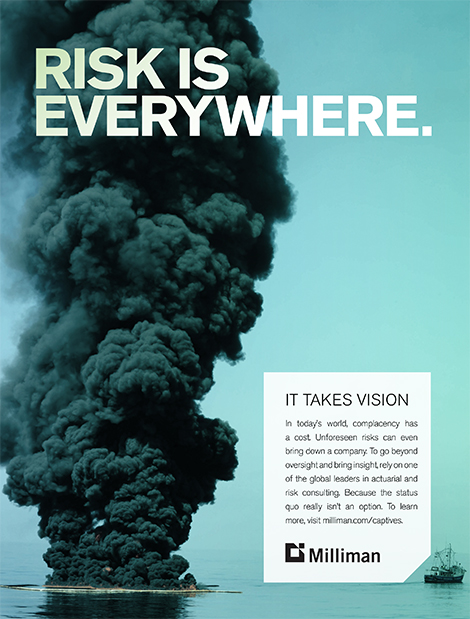ASW Law
Economic changes in Canada have companies considering captives in warmer climes for their insurance coverage. Kim Willey of ASW Law explains
How have macroeconomic factors affected Canadian businesses? Have you seen any new lines for captives?
Canada has seen tremendous change in the last year and a half. These factors have made Canadian companies more alive to risk generally and more specifically to their insurance coverage and the prices they are paying for such coverage.
With falling oil and gas prices, Bermuda has seen an uptick of interest in captives for oil and gas companies. This may be because these companies are now more aware of reducing costs as a way to maximise their bottom line, and they see captives as a solution.
High-profile cyber breaches have also created an interest in setting up captives to self-insure against cyber risks, which are often very difficult to price appropriately for specific businesses in the commercial market. Also, Bermuda has seen more interest in the use of captives for employee benefits, as Canadian companies become more aware that this is a way to reduce costs and increase organisational discipline for these types of risks.
Has the current landscape meant an increase in captive activity?
Interest in Bermuda captives from Canadian companies has been steadily increasing since the introduction of the Tax Information Exchange Agreement (TIEA) between Canada and Bermuda in 2011.
The TIEA levelled the playing field with Barbados, which has had a double-tax treaty with Canada for some time. This resulted in a number of captives of large publically listed Canadian companies re-locating to Bermuda.
The TIEA allows profits from captives that insure non-Canadian risk to be repatriated to Canada at a reduced tax rate. It is very important to note that this is meant to encourage Canadian companies to invest in international operations and bring profits back to Canada. There is no tax advantage for captives that insure Canadian risk. Therefore, the reason for using a captive continues to be that it is an efficient business structure.
For Canadian multi-national companies with international risk, TIEA permits the tax-free repatriation of certain profits, related to such international risk, back to the Canadian parent. Although tax savings may be a reason for setting up a captive for international risk, the primary motivation continues to be business efficiency.
Why are Canada-based companies heading to Bermuda? What does Bermuda have that Canada lacks?
Canadian companies are setting up captive structures in Bermuda because captives are an efficient business structure. Captives allow companies to better control their insurance costs and claims and to manage risk within their organisation. Captives can also access the reinsurance market directly.
The capital placed in a captive may also be invested, allowing the company to earn investment income.
Canada does have a ‘home-grown’ option for captives, in British Columbia. However, in our experience, British Columbia does not offer the advantages of Bermuda, particularly as captive regulation is a very small part of British Columbia’s regulatory ambit.
Canadian companies are selecting Bermuda because it is a well-respected leading jurisdiction for captive formation, management and regulation. Bermuda has a knowledgeable and efficient regulator, the Bermuda Monetary Authority (BMA), which specialises in captive regulation.
Bermuda is also a highly collaborative jurisdiction. Industry, government and regulators work closely together to facilitate speed to market and innovative, expeditious resolution of client issues.
In addition, Bermuda has a strong history of innovation when it comes to new lines of insurance business and a well-established reinsurance market. Bermuda also has a wealth of dedicated insurance service professionals and an established infrastructure.
Are there any regulation restrictions in Canada?
Canadian companies should consult with their Canadian advisors as part of the feasibility study process for specific advice. However, there are no Canadian legal restrictions on a Canadian company setting up a Bermuda captive.
If the Canadian company is looking to insure Canadian risk through the captive, it should again consult with its Canadian advisors for any fronting arrangements required in Canada.
Have the Panama Papers had an impact on the number of Canadian companies choosing to domicile in Bermuda?
The Panama Papers and some other recent notable tax fraud cases in Canada have certainly increased the scrutiny of offshore jurisdictions. However, Canadian companies are continuing to recognise the value of the Bermuda captive structure.
The first point to make is that despite all the negative press, offshore investments are not illegal. The Canada Revenue Agency has stated on its website: “Investments outside the country are not illegal. Canadians who invest outside the country are in compliance with Canada’s tax laws as long as they report all of the income earned outside Canada.” The second point to make is that for Canadian risk, as stated above, there is no tax play for Canadian companies. The TIEA only grants favourable tax treatment on the repatriation of profits on active business sourced outside of Canada.
Therefore, Canadian companies who use the captive structure for risks associated with a business in Canada pay tax in Canada in just the same way as any other Canadian business. The reason for a setting up a captive is that it is an efficient business structure.
The third point is that not all offshore jurisdictions are the same. Bermuda is globally respected for its leadership and proven record on compliance and transparency.
In particular, the EU awarded Bermuda full equivalence with Europe’s Solvency II insurance regulatory regime in 2016, and Bermuda was the first offshore jurisdiction to be granted qualified jurisdiction status by the US National Association of Insurance Commissioners, effective 1 January 2015.
Solvency II equivalence was a huge vote of confidence in Bermuda’s entire regulatory structure by the EU.
However, as the enhanced capital requirements are not relevant to the captive structure, Solvency II equivalence is only directly applicable to Bermuda’s commercial insurers, not captives.
How can a company reassure its management that an offshore captive structure is safe?
Although Canadian boards and management are rightly wary of offshore structures, once a company has completed its feasibility analysis it will find that the captive structure is a very efficient method of managing risk.
Bermuda as a jurisdiction for the captive is a natural choice for all the reasons mentioned above. Bermuda has a long history of forming, managing and regulating captive structures.
Bermuda’s regulatory structure is robust and ensures that the captive is properly capitalised to meet its ongoing risk management objectives.
Bermuda also has a wealth of world-class service providers, many with experience in the Canadian market. We would recommend that key decision-makers visit Bermuda and meet with the professional service providers and the regulator on the island as part of their due diligence process.





